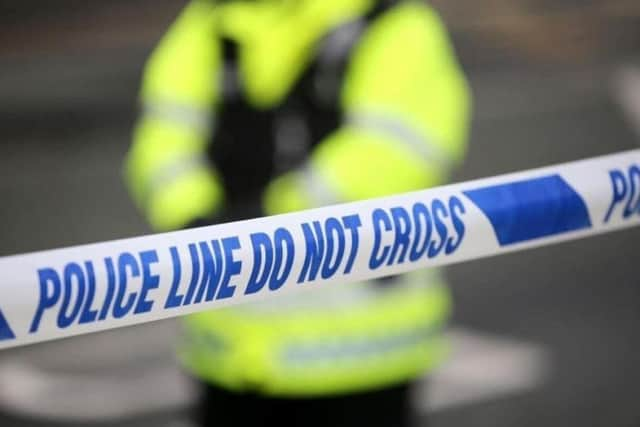Warnings of 'green light' to criminals as police close crime investigations with no suspect
An analysis of crime figures shows that hundreds of thousands of police probes are shut down without any suspect in the frame, including three quarters of reported vehicle thefts, four in five residential burglaries and almost half of shoplifting cases. Police chiefs say increased demand and reduced officer numbers mean they have to prioritise cases where there is a realistic chance of prosecution.
The analysis of Home Office figures, which covers the 12 months to March and reflects the position as of June, found that recorded shoplifting and vehicle theft levels are at their highest in years. Some of the country’s largest forces were among those with the highest percentages of cases closed without a suspect being identified.
Advertisement
Hide AdAdvertisement
Hide AdAlex Mayes, of charity Victim Support, said: “News like this could undermine confidence in the criminal justice system and prevent people reporting in the future.”


West Midlands Police and the Metropolitan Police closed 91 per cent and 85 per cent of vehicle thefts they recorded without a suspect being identified respectively, the analysis found.
Across all forces, 81 per cent of a total 249,235 residential burglary offences recorded in 2017-18 were closed without a suspect being identified.
South Yorkshire Police closed 80 per cent of burglary cases with no suspect, the figures show.
Advertisement
Hide AdAdvertisement
Hide AdHumberside and West Yorkshire ceased investigating 79 and 76 per cent of burglaries respectively without finding a suspect. The figure for North Yorkshire was 58 per cent.
In North Yorkshire 20 per cent of shoplifting cases were closed with no suspect, compared to more than 40 per cent in Yorkshire and Humber’s other three forces.
Labour MP Yvette Cooper, who chairs the Commons Home Affairs committee, said: “Police forces are under immense pressure with rising serious and violent crime and changing patterns of crime alongside cuts in the numbers of officers and PCSOs.
“These figures suggest that investigations into volume crimes are now being hit. Failing to identify suspects gives criminals a green light to reoffend.
Advertisement
Hide AdAdvertisement
Hide AdDeputy Chief Constable Amanda Blakeman, National Police Chiefs’ Council lead for acquisitive crime, said increased demand and fewer officer numbers have led to forces prioritising cases with a realistic prospect of prosecution.
She added: “Police investigate all cases of theft, burglary and shoplifting. Particularly for these types of offences, police focus on targeting prolific offenders, organised crime networks, and ensuring prevention measures by homeowners and businesses are in place.”
A Home Office spokesman said: “We expect the police to take all reports of crime seriously, to investigate and to bring the offenders to court so that they can receive appropriate punishment.
“However we recognise that crime is changing and police demand is becoming increasingly complex. That is why we have provided a strong and comprehensive £13 billion funding settlement to ensure the police have the resources they need to carry out their vital work.
Advertisement
Hide AdAdvertisement
Hide Ad“The Government remains alert to changes in trends and new methods used by criminals - and we will continue to work with the police, industry and others to consider the evidence and what more can be done to prevent these crimes taking place.”
Humberside Police’s Assistant Chief Constable Chris Noble said: “We take all crime seriously and of these crimes types referred to we are above the national average in identifying suspects.
“However, like all areas of the country, there are cases where we are unable to do this.
“This could be because there is insufficient evidence, no witnesses, or the victim doesn’t want to pursue the report anymore. This can significantly reduce the chance of identifying offenders.”